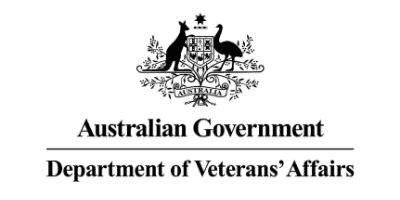ROOM TO GROW | FAQS | BRISBANE
Frequently Asked Questions
What can I expect from my first session?
The first session is an opportunity for your psychologist to gain an understanding of the issues that have brought you to therapy. Your psychologist will discuss your current concerns and explore all the areas both present and past that may be contributing to your symptoms.
Your psychologist will explore all relevant background information to then work with you to set goals to work towards in your coming sessions. Your psychologist will use evidence-based treatment interventions that have been shown to provide good outcomes for your symptoms/areas of concern.
What do I need to bring for the first session?
Prior to your first appointment, you will have received an email with a link to complete our consent form online. This means you do not have to complete this paperwork or print anything out. Completing this online means it will not take up time from your first appointment. If you have a paper copy of your mental health care plan referral from your GP or Psychiatrist, you can bring this as well.
If you do not have a paper copy, your referral may have already been sent to us electronically. If you have made a note of goals you would like to work on, or symptoms you have been struggling with, please feel free to bring this information to share with your psychologist.
What if I do not have a referral?
Everyone is welcome to attend therapy sessions without a referral. Please call our admin and they will help you book an appointment. Full session fees will apply, and without a referral, you will not be eligible for a Medicare rebate. Some private health funds will provide a rebate for psychology sessions. Sessions attended under private health do not require a referral.
How long does a session last?
A standard consultation time for an individual therapy session is 50 minutes.
What is a Mental Health Care Plan?
A Mental Health Care Plan is a plan your doctor writes with you about treating a mental health condition. It helps you to access eligible allied health professionals like psychologists, to assist you with improving your mental health and quality of life. It can be helpful for people with minor mental health conditions or very serious conditions, short-term concerns or long-term illnesses. You don’t already have to be diagnosed with a mental health condition to talk to your doctor about writing you a Mental Health Care Plan.
Having a Mental Health Care Plan allows you to have up to ten individual, and ten group therapy sessions per calendar year, with a rebate provided by Medicare. To learn more about the rebate, please see our fees page.
How do I know if I am eligible for a Mental Health Care Plan?
You will need to schedule a long appointment with your GP, who will then be able to assess whether you are eligible for a mental health care plan. To be able to claim a Medicare rebate for your appointment with your psychologist, you will need a copy of your mental health care plan – which needs to be written by your doctor before your appointment.
Is what I say to a psychologist confidential?
What you say to a psychologist is confidential and will not be passed on to anyone else without your consent. The only occasions that fall outside of this are the following: if it is subpoenaed by a court; if there is failure to disclose information that would place you or another person at serious and imminent risk; or if disclosure is otherwise required or authorised by law.
If you are concerned about confidentiality, you can ask your psychologist for more information about this.
What is the difference between a psychologist and a psychiatrist?
Psychologists are health professionals who work in a range of public health and private settings. General psychologists undertake a minimum of four years of university training, plus an additional two years of supervised internship. Clinical, Educational and Developmental, and Organisational psychologists will have undertaken six years of university training.
All psychologists participate in ongoing professional development and supervision to maintain their registration. Psychologists are trained to assess, diagnose and treat mental health disorders. Their approach to treatment involves ‘talking’ therapies, using evidence-based approaches that are scientifically proven to be beneficial.
A psychiatrist is a medical doctor who specialises in psychiatric illness. Psychiatrists are licensed to assess and diagnose psychiatric disorders and prescribe medication. Some psychiatrists also offer therapeutic support.
How many sessions do people tend to see a psychologist for?
This varies depending on the reason a person is attending therapy. Some people may only require short to medium term therapy if their reason for attending is to develop coping strategies to help them manage a particular situation. Other clients may be attending as they want to understand and work on long-standing issues or patterns in their thinking, and therefore may require more appointments. The frequency of appointments is something your psychologist will discuss with you.
What if I have a referral for a different psychology practice or psychologist?
Your Mental Health Care Plan referral means that you are eligible for a Medicare rebate under the Better Access Scheme. It is your choice who you would like to see as your psychologist.
If you have a current mental health care plan referral from your GP, this referral can be transferred to different psychologists or psychology clinics. To arrange this, you can speak with your GP clinic.
How much will it cost to see a psychologist?
This will depend on the type of session you’ve chosen, and whether or not you’re eligible for rebates or covered under other plans. For more information, please see our Fees page.
Do you offer online counselling?
Yes, all of the psychologists on our team are able to provide online sessions. For more information, please check out our online therapy page.
Do you offer sessions through Queensland Police Service SelfRefer?
Yes. We currently have a number of psychologists who are registered providers with the Queensland Police Service SelfRefer program. This SelfRefer program allows QPS personnel to attend up to six sessions with a psychologist without needing a referral.
The psychologist will sight your registration number and provide the QPS a de-identified invoice number (e.g. QPS1002). Your registration number or identifying information will not appear on any documentation with your de-identified invoice number.
The SelfRefer Program is available to you anytime, anywhere and for any level of support. You can access SelfRefer for any reason whether its personal or work-related.
Can I contact my psychologist after hours?
We are unavailable after opening hours.
Room to Grow Psychology is not an emergency service - if you require immediate support, please contact emergency services or after hours counselling services such as:
- Police, Fire or Ambulance - 000
- Lifeline - 13 11 14
- Kids Helpline - 1800 55 1800 (for young people up to the age of 25)
- Domestic Violence Hotline (QLD) 1800 811 811
- Mensline - 1300 78 99 78
- Parentline (QLD) - 1300 30 1300
For more service options, please see our resources page.
Does Room to Grow Psychology offer couples therapy?
No, we do not offer couples therapy at our practice.
Does Room to Grow Psychology offer reports for court including family court assessments?
No we do not.
Does Room to Grow Psychology offer assessments for Autism Spectrum Disorder (ASD)?
No, none of our psychologists currently offer assessments for autism spectrum disorder. Room to Grow Psychology can suggest some local psychology practices who do offer this service upon request.
How do I access Medicare rebates?
There are several types of plan under Medicare which provide rebates for psychology:
Mental Health Care Plan
You can obtain a Medicare Mental Health Care Plan (MHCP) from your
GP, Psychiatrist or Paediatrician. This plan allows you to obtain Medicare
rebates for up to 10 psychological sessions in a calendar year. You will need
to book a long consultation with your GP to complete this plan. Clients are
encouraged to register for the Medicare Safety Net to
obtain higher Medicare rebates after the safety net is reached. Medicare
rebates are available for in person or telehealth appointments.
Eating Disorders Plan
This plan allows a client up to 40 sessions per calendar year, with a GP review after every 10 sessions. This plan is for clients diagnosed
with a specific eating disorder. Please visit your GP for this referral.
Our associations






We're here to support you
Our psychologists are ready to provide support that is centred around you. Take the first step in your journey with us and give us a call.
Or call us on 07 3076 2238


